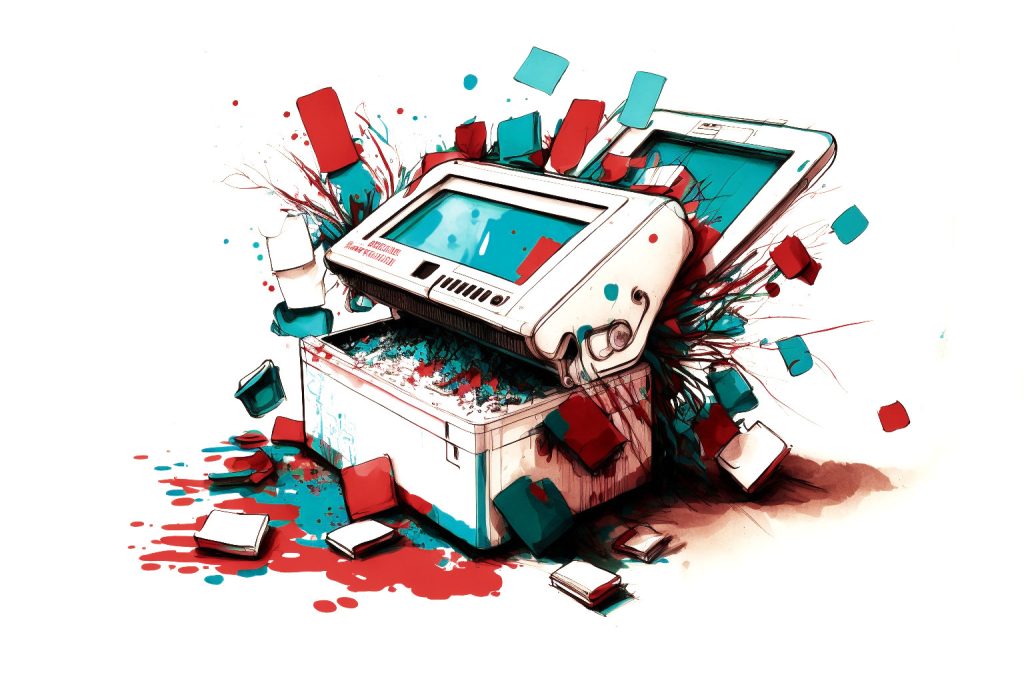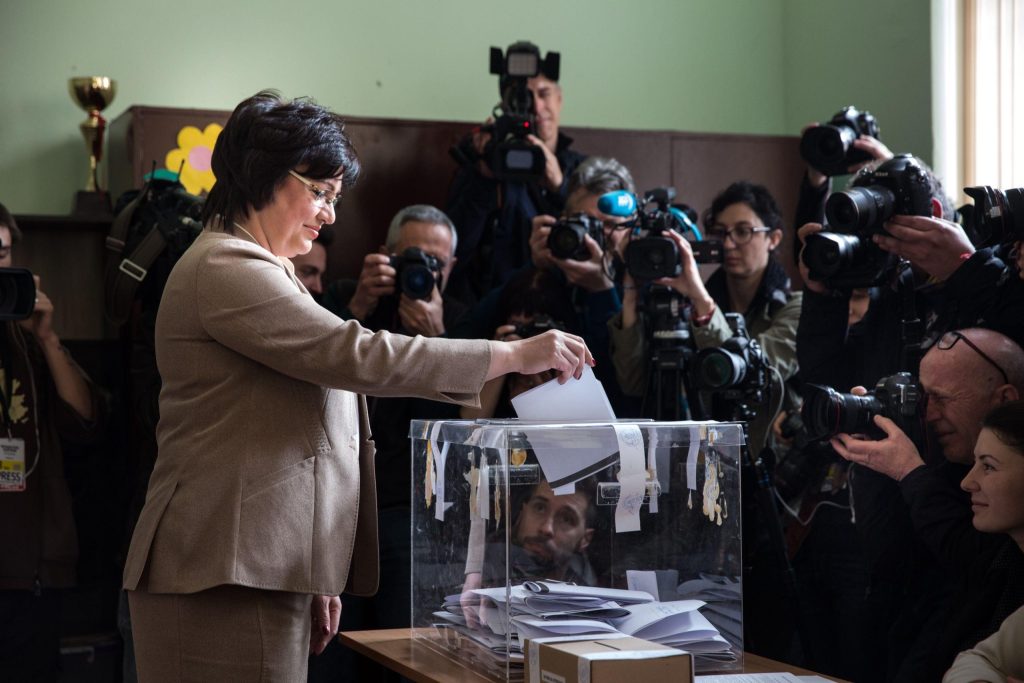“Will we allow them to steal our votes?” This question, written on neon-yellow placards, hovered over the crowd gathered in front of the Bulgarian national parliament in Sofia on the evening of Thursday 1 December. Beneath the text, the placards depicted the leaders of three of the county’s largest parties as thieves fleeing the scene with bags full of ballot papers.
Hundreds of Bulgarians had gathered in the capital to protest against changes to the country’s electoral code. Earlier the same week, Bulgaria’s parliament had approved the reinstatement of paper ballots for use in elections. The move came just 18 months after paper ballots had been abolished, and voting machines made compulsory. What may sound like a purely technical issue is in fact part of an ongoing struggle for the future of Bulgarian democracy.
“The sudden reintroduction of the paper ballot is a clear sign that parties associated with the corrupt status quo are setting the scene for manipulations at the likely upcoming snap parliamentary election,” Dr. Radosveta Vassileva, a legal scholar and Research Fellow at Middlesex University in London, told Democracy Technologies.
Compulsory Voting Machines Reversed
In May 2021, Bulgaria became the first country in Europe to make the use of voting machines compulsory. During the short-lived 45th National Assembly, which lasted just two months, the party “There Is Such a People” (Ima Takav Narod) proposed the revision to the country’s electoral code. The changes were passed, in spite of bitter opposition from several major parties.
The move was intended to tackle the unusually high number of invalid ballots (more than 15% in municipal elections in 2017), as well as vote buying. And according to international observers, the measure was effective: the Organization for Security and Co-operation in Europe (OSCE) and Parliamentary Assembly of the Council of Europe (PACE) both observed that the machines had a “positive impact” on electoral integrity in the November 2021 elections.
But last week, following a mammoth 40-hour parliamentary session, this decision was reversed, as the country’s electoral code was modified to reinstate the use of paper ballots.
The reform effectively reduces voting machines to glorified printers. While they will continue to be used in some instances, there will be no electronic count. Instead, they will simply print receipts which will be handed-counted along with traditional paper ballots. Crucially, the data summaries produced by the machines to verify election results will no longer be made available to the public.

The “Paper Coalition” against Voting Machines
The reversal was proposed by BSP for Bulgaria, a left-wing coalition led by the Bulgarian Socialist Party. It was also backed by former Prime Minister Bokyo Borisov’s party Citizens for European Development of Bulgaria (GERB), as well as Movement for Rights and Freedoms (MRF), a party which represents Bulgaria’s Turkish minority population.
This unusual alliance – which brings together three factions who have categorically ruled out working together in a government – has come to be known locally as the “paper coalition” for their determination to reintroduce paper ballots.
Efforts to reintroduce paper ballots began immediately after voting machines were made compulsory. When initial efforts in this direction failed, GERB began spreading disinformation about voting machines.
GERB Chairman Borisov recently rejected the label of a “paper coalition”, even claiming that paper ballots are an issue that GERB “hardly cares about”. Yet his party’s attacks on voting machines suggest that this is not the case. “Machine voting – I am with both hands in favour – but with machines like in the United States. We do not trust Maduro’s machines [a reference to the popular conspiracy theory that Smartmatic voting machines are under the control of Venezuela]. Let’s talk about the security of the code and the flash drives, why are you lying with them? You let a private citizen run our elections!”
Meanwhile, Yordan Tsonev of MRF alleged that voting machine software had been manipulated to favour the parties We Continue the Change [PP] and Democratic Bulgaria [DB] – both of whom support the use of the machines.
Fears of a Return to Invalid ballots and Vote Buying
Kiril Petkov, Prime Minister from December 2021 to August 2022 and leader of the We Continue the Change party, has attacked the reforms. Speaking ahead of the protest, he said: “Today is the day when the democratic vote of every Bulgarian citizen will be substituted, the day when we open the door to 15% invalid ballots when the distortion of the vote makes the whole system work corruptly.”
Dr. Vassileva explains that with a return to paper ballots, many Bulgarians fear that former vote-buying practices will make a comeback. These include the well-known “take a selfie with your ballot” scheme, where voters were required to take a selfie of themselves with their completed ballot paper in the privacy of the voting booth. As Dr. Vassileva explains on her blog, voting machines made such schemes impossible. With the return of paper ballots, however, the door is open for their return.
Ongoing Political Turmoil
Bulgaria has been in the grip of parliamentary paralysis for some time now, which threatens to leave the country rudderless as it heads into a winter beset by inflation and rising Covid numbers. This situation was compounded earlier this week when Austria and the Netherlands blocked the country from joining the Schengen zone.
In November, the country’s fourth election in two years ended in uncertainty. If no faction succeeds in building a government, a snap election is likely to follow shortly. With paper ballots back in the mix, it remains to be seen whether the progress made in the last 18 months in combating electoral manipulation will be undone.
